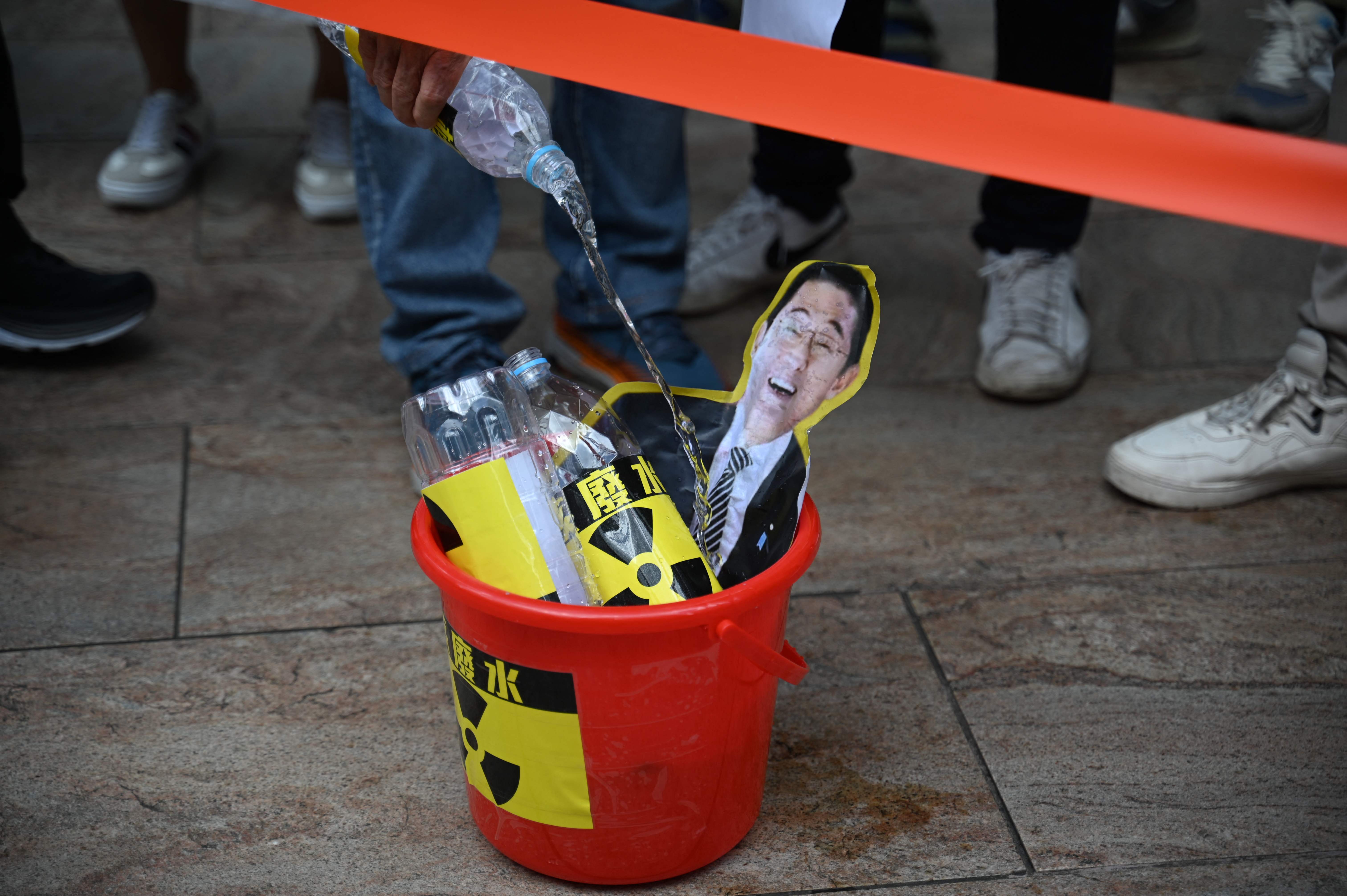China summons Japanese envoy as Fukushima nuclear water set to be released into ocean in next 24 hours
Hong Kong and Macau to impose ban on aquatic product imports from 10 Japanese regions including Tokyo and Fukushima
Your support helps us to tell the story
From reproductive rights to climate change to Big Tech, The Independent is on the ground when the story is developing. Whether it's investigating the financials of Elon Musk's pro-Trump PAC or producing our latest documentary, 'The A Word', which shines a light on the American women fighting for reproductive rights, we know how important it is to parse out the facts from the messaging.
At such a critical moment in US history, we need reporters on the ground. Your donation allows us to keep sending journalists to speak to both sides of the story.
The Independent is trusted by Americans across the entire political spectrum. And unlike many other quality news outlets, we choose not to lock Americans out of our reporting and analysis with paywalls. We believe quality journalism should be available to everyone, paid for by those who can afford it.
Your support makes all the difference.Japan is facing growing diplomatic pressure from its neighbours as it readies to release treated radioactive water from the tsunami-wrecked Fukushima power plant into the ocean.
China on Wednesday said it would take all necessary measures to protect the marine environment, food safety and public health, after Beijing summoned the Japanese ambassador over the discharge of water.
"Vice foreign minister Sun Weidong summoned Japan's ambassador to China, Hideo Tarumi, to make solemn representations regarding the Japanese government's announcement that it would initiate the discharge of Fukushima's nuclear-contaminated water into the sea," a foreign ministry statement said.
Japan is to start releasing more than 1 million metric tonnes of treated radioactive water, enough to fill 500 Olympic-sized swimming pools, into the ocean on Thursday.
China, the biggest importer of Japanese seafood, has vehemently opposed Tokyo's decision, while imposing a ban on aquatic products.
The Asian financial centre of Hong Kong and the gambling hub of Macau will ban aquatic product imports from 10 Japanese regions, including Tokyo and Fukushima from Thursday.
The impact of the Hong Kong and Macau seafood bans could not be immediately calculated but would be "significant", Japan's ministry of agriculture, forestry and fisheries said.
In neighbouring South Korea, the majority opposition party and civic groups around the country stepped up protests on Wednesday against Japan, calling Tokyo's plan to discharge water from the Fukushima plant an act of "terror".

"We intend to hold the Yoon government responsible for failing to do its duties," opposition Democratic Party leader Lee Jae-myung said at a party meeting.
A July public survey by Media Research found 62 per cent of the polled South Korean people said they would cut back or stop consuming seafood once the discharge goes ahead.
Democratic Party members and foreign minister Park Jin clashed in parliament over the possibility of direct impact to South Korea.
Mr Park said currents will carry the water around the Pacific along the Americas before it reaches South Korea's shores in four years containing less radioactive tritium than normal sea water.
Japan has said that the water release is safe and will be diluted to well below internationally approved levels of tritium (an isotope of hydrogen hard to separate from water) before being released into the Pacific.
The International Atomic Energy Agency (IAEA) approved the plan in July, saying that it met international standards and that the impact it would have on people and the environment was "negligible".
“I would like to reiterate that the release of tritium from nuclear facilities into waterways has and is undertaken worldwide with no evidence of environmental or human health implications,” said Tony Hooker, director of the Centre for Radiation Research, Education and Innovation at The University of Adelaide.
“I think with the likely comprehensive independent monitoring of the environment to occur around the release site of Fukushima, that this will hopefully alleviate some of the fear that has been generated around this issue.”
The Fukushima discharge will be discussed at a meeting of the five-nation Melanesian Spearhead Group on Thursday as the Pacific Islands weigh in on the controversial move.




Join our commenting forum
Join thought-provoking conversations, follow other Independent readers and see their replies
Comments